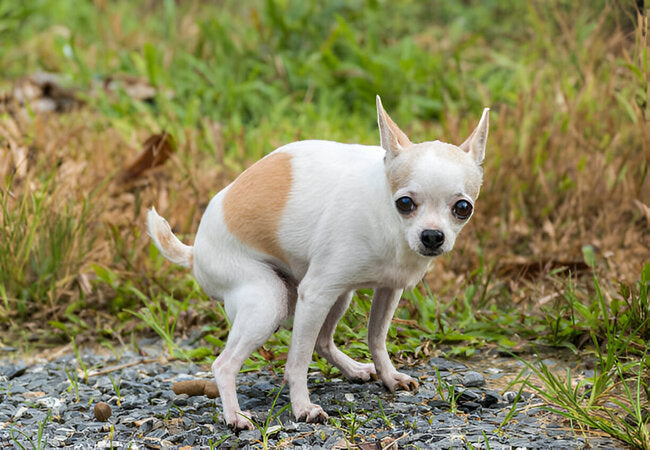Why Dogs Watch You While Pooping: 2025 Vet-Approved Behavior Guide 🐕👀

In this article
💩 Why Do Dogs Look at You When They Poop? Understanding Canine Behavior, Vulnerability & Bonding in 2025
By Dr. Duncan Houston BVSc
🤔 Have you witnessed a "poop stare"?
You're outside on potty duty, your dog squats to go... then suddenly looks at YOU, as if saying, "Are you watching?" This unusual behavior has pet parents puzzled and amused. Let's uncover the reasons behind the stare.
1. 🌿 Vulnerability During Elimination
Dogs instinctively perceive going to the bathroom as a vulnerable moment—exposed and off guard. In the wild, this made them susceptible to predators. By glancing at you, they seek security, reassurance, or backup. Rochelle Hartson, DVM, explains that this eye contact "gives them a sense of safety".
2. 👍 Seeking Approval & Reinforcement
During puppy potty training, dogs learn that praise or treats follow when they go the right way. Even with time, that "reward center" stays active. Dr. Hartson notes they may look at you expecting that same affirmation—even years later .
3. 👁️ Line of Sight May Be Coincidental
According to behaviorist Dana Fedman, dogs aren't ashamed during bathroom sessions—they simply glance around, and you might happen to be in view. What looks like a stare can just be them scanning their surroundings.
4. 🗣️ Packs & Social Signals
Like wolves, dogs are pack animals. When one is vulnerable—or even relaxed—the rest of the pack provides cover. Your dog’s stare may be a silent request: "Cover me, friend." ScienceABC and iHeartDogs agree they rely on you as part of their pack instinct .
5. 🧠 Not Embarrassment or Shame
Humans often misread this behavior as embarrassment. However, Dr. Sung notes dogs don't feel embarrassment the way we do—it's more about submission or stress signals, not moral judgment.
Should You Look Back—or Look Away?
It’s up to you! Maintaining eye contact can soothe your dog; looking away may give them privacy. If it feels weird, simply turn slightly away or keep them in your peripheral vision. Dr. Fedman suggests changing your position to reduce the stare chance .
🚨 Poop-Time Health Checks: Why It Matters
While you’re there, take the opportunity to observe their poop. Dr. Gamm recommends monitoring frequency, consistency, and spotting signs like straining, diarrhea, or hard stools—they can indicate health concerns like constipation, infection, parasites, or food sensitivities .
6. 🐾 Kicking & Ground-Scratching After Pooping
Have you ever watched your dog kick dirt after going? That's normal ground-scratching—a way to disperse scent and mark territory both chemically and visually to other dogs.
7. 👶 Fast-Mapping & Social Learning (Bonus Insight)
While not directly tied to pooping, a dog’s ability to learn new words such as “go potty” shows how receptive they are to training cues. Their gaze helps pair your words with their actions, increasing understanding through associative learning—just like potty training .
👁️🗨️ Deciphering the Poop Stare: Quick Tips
- ✅ If they stare while pooping: respond calmly—safety cue or praise—whatever feels natural.
- 🛡️ Position changes: stand quietly to the side or slightly behind them if you'd rather avoid eye contact.
- 🕵️♂️ Observe health: track poop consistency, frequency, straining—note anything unusual and consult your vet.
🧸 How Ask A Vet, Woopf & Purrz Can Help
Need support decoding behavior or establishing a potty routine?
- 🩺 **Ask A Vet**: Chat with licensed veterinarians to ask about bathroom habits, signs of gastrointestinal upset, or behavioral cues in real time.
- 🧼 **Woopf**: Use leakproof, easy-clean training pads, or compact poop bags to support consistent, clean potty training.
- 🦴 **Purrz**: Digestive health matters—use probiotics to support smooth bowel movements and gut well‑being.
🔚 Final Thoughts
That mid‑poo stare isn’t weird—it’s instinctual. Your dog sees you as pack protector and may be seeking reassurance, approval, or just glancing at you naturally. It reflects trust, vulnerability, and healthy communication.
By responding thoughtfully—through presence, movement, or words—you strengthen your bond and support their sense of security. And never miss a chance to check their poop for hidden health signals.
Remember: your dog relies on your calm, compassionate watch over them—especially when they’re most defenseless. 🐾
— Dr Duncan Houston, BVSc
Looking for personalized behavior support? Visit AskAVet.com and download the Ask A Vet app for 24/7 guidance on potty routines, gut health, and emotional well‑being.






